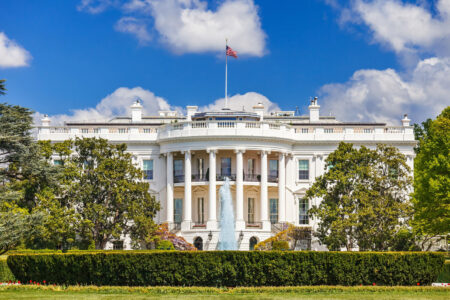The benefits of crypto are steadily increasing and getting more recognition from a wide variety of quarters. Not only do they help us conduct transactions without a middleman, they have also played a significant role in the current war. Properly regulating this new financial system could be the key for achieving global adoption.
Recent global developments have unlocked a new era for cryptocurrencies. Rising geopolitical tensions have put a strain on an already outdated financial system. This in turn poses unique opportunities for cryptocurrencies to show their real value. Recent events have shed light on the potential of innovative finance to empower citizens around the world.
Use of cryptocurrencies in times of war
With regard to the conflict in Ukraine, we have already been able to see the opportunities made possible by the blockchain technology. More than $50 million has already been raised using cryptocurrencies to support people locally. These crypto donations will provide humanitarian aid to millions of people affected by the war. Future-oriented, they can later also be used by Ukraine as liquidity or to purchase relief supplies.
Thanks to crypto platforms, anyone around the world can contribute to these efforts without a third instance. In this conflict with two very distinct sides, we see crypto working as it should: a transparent, public, and quick way to move capital to where it is needed and showing its positive sides for the people who already using this technology. These developments in the crypto space are bringing the conversation to a new level: regulations. Although contentious for many in crypto, regulations could be a boon for the industry.
It has been revealed recently that Ukraine is in talks with Stellar to develop its own central bank digital currency (CBDC). Just last week, the country’s president signed a bill that will open the way to establishing a legal framework for digital assets. Ukraine is not alone; several other countries have been moving closer to the crypto world. Regulations could thus play an important role in bridging the gap between traditional and digital finance. In this sense, it is important for regulators to be open-minded and forward-thinking while embracing the value that crypto brings to the economy, wider society, individuals and businesses.
Regulations to achieve acceptance
Accepting cryptocurrencies as a legitimate currency offers companies the opportunity to protect their capital and expand their operations around the world. However, for cryptocurrencies to gain acceptance, regulations will play an important role. Financial and crypto education must continue to expand when it comes to engaging investors and corporate institutions in the growing crypto economy and showing them the many benefits that blockchain technology enables.
Regulations could help the industry gain visibility, credibility and legitimacy. Despite this, it is the industry's responsibility to facilitate access and deploy innovative technologies to improve the user experience, develop new investment opportunities, and limit the risk of potentially harmful fraud and fraudulent tokens.
Image Problem
Crypto unfortunately still has an image problem. And this image problem is how regulators, banks, and politicians are choosing to regulate and hold back this innovative market. The biggest concern for policymakers is customer identity and anti-money laundering checks for illicit transactions. Since the reach of crypto is global, most of the regulators feel the risks are far higher to at risk retail investors compared with other trading markets such as FX Trading or Equities. However, what they don't see or don't want to acknowledge is that the whole blockchain system is superior to the traditional financial system in most aspects. It offers fair defaltionary and also secure trading of a wide variety of digital currencies, and gives everyone in the world unrestricted access to the entire financial system without any third party authority falsification.
Regulators and the financial services industries should prioritize innovation in finance by recognizing crypto and blockchain innovation and making it available to the broader population as a legitimate payment method. The future of technology is well on its way and will most likely be called Blockchain. Now we need to find innovative ways to successfully bring this technology to the global financial world.




